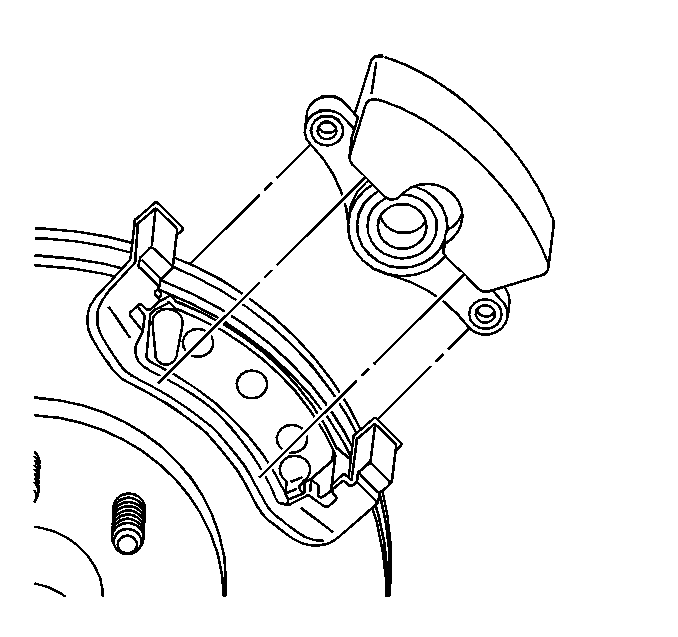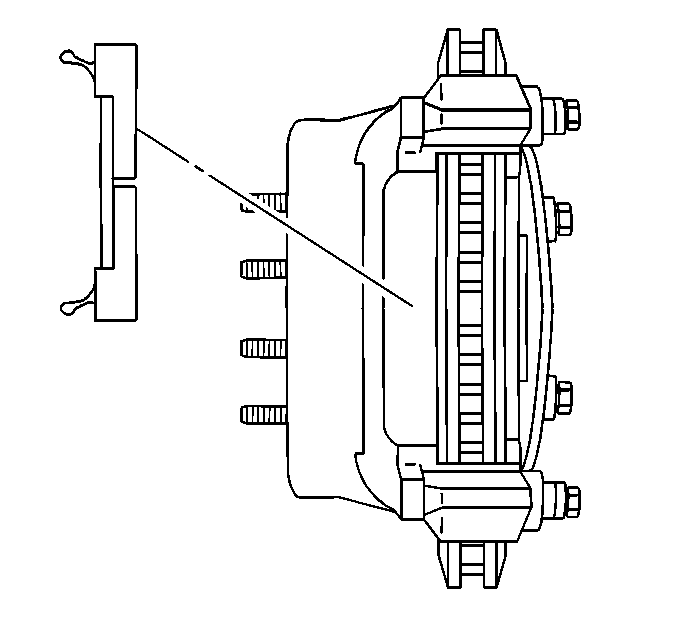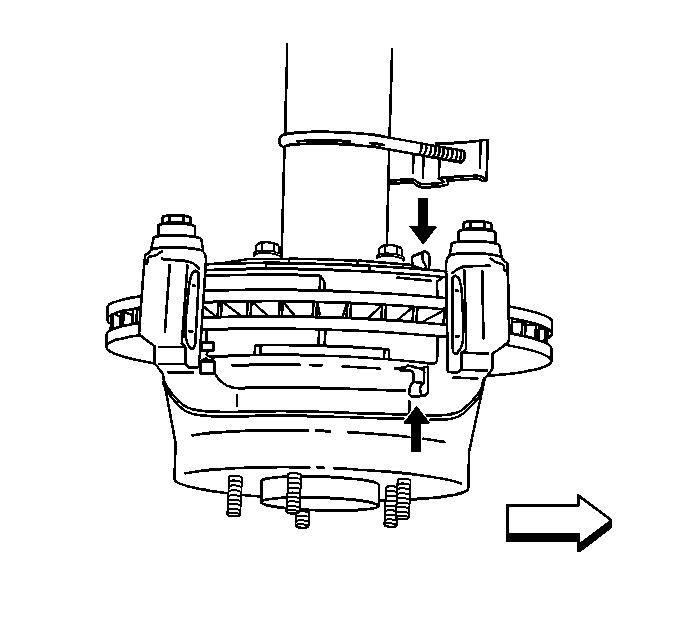Removal Procedure
Notice: Support the brake caliper with heavy mechanic wire, or equivalent,
whenever it is separated from its mount and the hydraulic flexible brake hose is still connected. Failure to support the caliper in this manner will cause the flexible brake hose to bear the weight of the caliper, which may cause damage to the brake hose and
in turn may cause a brake fluid leak.
Important: Do not disconnect the brake hose from the caliper.

- Remove the caliper. Refer
to
Rear Brake Caliper Replacement
.
Notice: Support the caliper with a piece of wire to prevent damage to the brake
line.
- Suspend the caliper

- Remove the brake pads
from the caliper bracket.
- Inspect the caliper bracket boots for the following conditions:
- Inspect the piston boot for the following conditions:
- Inspect the caliper bolts for corrosion or damage. If corrosion
exists, use new components (including bushings) when installing the caliper.
Do not attempt to polish away the corrosion.
Installation Procedure
Important: Before installing new brake pads, wipe the outside surface of the caliper
boot clean. Use denatured alcohol.

- Install the pads to the
caliper bracket.

Caution: Do not move the vehicle until a firm brake pedal is obtained. Failure
to obtain a firm pedal before moving vehicle may result in personal injury.
- Verify that the wear sensors are at the trailing edge (downward) of
the pad during forward wheel rotation.

- Install the caliper. Refer
to
Rear Brake Caliper Replacement
.
- Burnish the new brake pads. Refer to
Brake Pad and Rotor Burnishing
.





